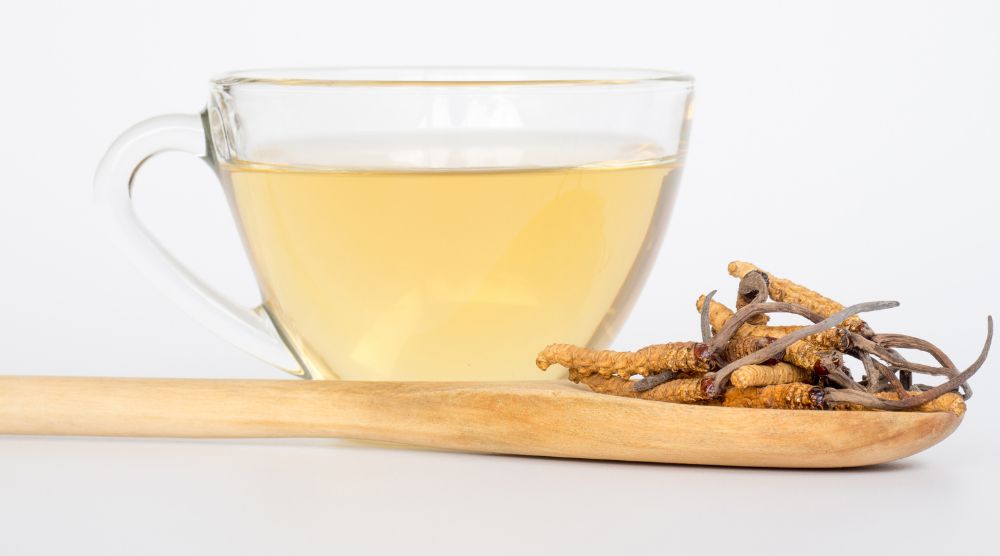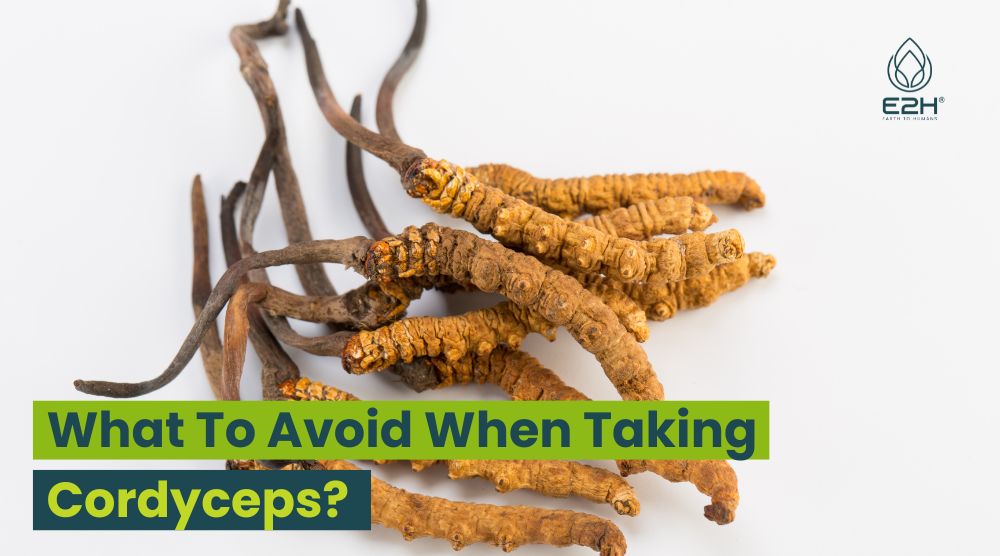Does Cordyceps Help Asthma: While some studies suggest cordyceps may have potential benefits in managing asthma symptoms by modulating immune responses, further research is needed to conclusively determine its efficacy and safety.
We unravel the threads of scientific studies, personal narratives, and the potent potential hidden within this peculiar fungus. Together, let’s embark on a journey, exploring, questioning, and discovering the secrets entwined within cordyceps.
What are the asthma symptoms?
- Shortness of breath
- Chest tightness or pain
- Wheezing when exhaling
- Coughing or wheezing attacks, especially while sleeping
- Difficulty sleeping due to breathing problems
- Increased difficulty breathing (measurable with a peak flow meter)
- Frequent respiratory infections
- Difficulty in catching breath during physical activities or exercise
- An audible whistling or wheezing sound when inhaling or exhaling
- Persistent cough, particularly at night or in the early morning

The Ancient Wisdom: Cordyceps in Traditional Medicine
In the realms of traditional Chinese medicine, cordyceps has been a star. It’s been used to treat various conditions, from fatigue to inflammation, and yes, even respiratory issues. But how does this translate into modern-day science, and respiratory medicine, especially concerning asthma?
Unveiling the Science: Studies on Cordyceps and Asthma
A Dive into Research Studies
In a study published in the Hindawi journal, researchers explored the effects of Cordyceps Sinensis on lung tissue in patients with moderate-to-severe persistent asthma. The results were quite intriguing!
The group treated with a Corbin capsule containing Cordyceps Sinensis showed a significant increase in their Asthma Quality of Life Questionnaire (AQLQ) scores and lung function compared to the control group.
Furthermore, the expression levels of certain inflammation markers decreased, while others increased, indicating a potential anti-inflammatory effect.
Another Perspective: Cordyceps Militaris
In another study from ScienceDirect, Cordyceps Militaris was put under the microscope, exploring its effects on airway inflammation in a mouse asthma model. While the fungus did show some potential in reducing airway inflammation, its effectiveness was less compared to certain medications like prednisolone and montelukast. It initially reversed airway hyperreactivity but lost its potency at higher doses.
The Consumer’s Lens: What Does This Mean for Cordyceps Consumers?
Weighing the Benefits and Limitations
While the studies provide a glimpse into the potential of cordyceps in managing asthma, it’s crucial for us, as consumers, to weigh the benefits and limitations. The research does hint at the possibility that cordyceps can aid in managing asthma symptoms and improving our health related quality of life, but it’s also vital to acknowledge the limitations and variability in its effectiveness.
A Word of Caution
As we explore the world of natural remedies treating asthma, it’s paramount to approach it with a balanced perspective. While cordyceps shows promise, it’s not a substitute for prescribed asthma medications. Always consult healthcare professionals before making any changes to a health regimen.
Are there any side effects associated with cordyceps use?
Cordyceps, while celebrated for its myriad of health benefits, is not without its potential side effects. Some individuals may experience mild side effects such as diarrhea, nausea, and dry mouth. Allergic reactions, though rare, can also occur, especially in those with known allergies to molds and fungi.
Moreover, cordyceps might slow blood clotting, so there’s a potential risk of bleeding in people with bleeding disorders or those taking anticoagulant medications. It’s also crucial to note that cordyceps can affect blood sugar levels, which is particularly pertinent for individuals with diabetes or undergoing surgery.
Pregnant or breastfeeding women and individuals with autoimmune diseases should exercise caution and consult healthcare professionals before incorporating cordyceps into their regimen to navigate through its benefits and potential risks effectively.
What is the recommended dosage of cordyceps for asthma relief?
The recommended dosage of cordyceps can vary widely due to factors like age, health status, and other conditions. While specific dosage for asthma relief is not universally established, some studies and traditional practices suggest dosages ranging from 1,000 to 3,000 milligrams per day.
However, it’s imperative to note that scientific research on the optimal dosage of cordyceps, particularly concerning asthma relief, is not exhaustive. Therefore, consulting with a healthcare professional or a registered herbalist to determine an appropriate and safe dosage tailored to individual needs and conditions is paramount to ensure efficacy and avoid potential side effects.
Are there any personal testimonials of people with asthma using cordyceps?
While there are numerous anecdotal accounts and personal testimonials available online regarding the use of cordyceps for asthma, it’s crucial to approach these with a discerning eye. Some individuals share stories of experiencing improved respiratory health and reduced asthma symptoms after incorporating cordyceps into their routine.

However, personal testimonials are subjective and should not be considered conclusive evidence of efficacy. It’s essential to remember that what works for one person may not work for another, and personal stories should be viewed as part of a larger, more complex picture, always considering scientific research and professional advice.
Where can I buy cordyceps supplements or products?
Cordyceps supplements and products can be purchased from various online and physical retailers. E2H (Earth to Human) is one such retailer that offers cordyceps supplements, and you can explore their offerings on their official website.
Additionally, cordyceps supplements are widely available on e-commerce platforms like Amazon, where you can find a range of products with varying formulations and dosages from different brands.
Other online health stores and platforms like iHerb, Vitacost, and Swanson Vitamins also offer a variety of cordyceps supplements. Always ensure to buy from reputable retailers and consider checking reviews and possibly consulting healthcare professionals to choose a product that is safe and suits your needs.
Is cordyceps more effective than traditional asthma medications?
| Aspect | Cordyceps | Traditional Asthma Medications |
|---|---|---|
| Scientific Backing | Limited scientific studies available, with some showing potential benefits. | Extensively studied and proven to be effective in managing asthma. |
| Regulation & Standardization | Not standardized or regulated in terms of dosage and formulation. | Strictly regulated, with standardized dosages and formulations. |
| Safety Profile | Generally considered safe but may have side effects in some individuals. | Known safety profiles, but can have side effects, especially with long-term use. |
| Accessibility | Widely available without a prescription, but quality may vary. | Available by prescription, ensuring standardized quality and potency. |
| Usage in Clinical Practice | Used more commonly in traditional medicine and as a supplement. | Widely used in clinical practice with established guidelines for use. |
| Mechanism of Action | Not fully understood; believed to have anti-inflammatory properties. | Well-understood mechanisms, targeting specific pathways in asthma management. |
| Cost | Can vary, generally affordable as a supplement. | Can be expensive, but often covered or subsidized by healthcare systems. |
What other natural remedies are there for asthma?
Various natural remedies are often explored for asthma management, including the use of herbs and supplements like ginger, turmeric, and omega-3 fatty acids, which are believed to have anti-inflammatory properties.
Breathing exercises, such as the Buteyko method, and yoga are also considered by some as complementary approaches to manage asthma symptoms. Additionally, some individuals explore the use of essential oils, like eucalyptus and peppermint, to have asthma treatments promote respiratory comfort.
It’s imperative to note that while these remedies might offer supportive benefits, they should not replace prescribed asthma medications and should always be discussed with healthcare professionals to ensure safety and efficacy.
Can cordyceps trigger allergies in asthma patients?
Cordyceps, being a fungus, has the potential to trigger allergies in some individuals, with allergic asthma, especially those with sensitivities to molds and fungi. Asthma patients, who often have heightened sensitivity to allergens, might experience exacerbated symptoms if they are allergic to cordyceps.
Symptoms could include respiratory distress, skin reactions, or gastrointestinal issues. Therefore, it’s crucial for asthma patients considering cordyceps as a supplement to consult with healthcare professionals and possibly undergo allergy testing to ensure that it does not aggravate their condition or trigger an allergic response.
How does cordyceps impact asthma symptoms and chronic obstructive pulmonary disease?
Cordyceps has been studied for its potential impact on respiratory health, particularly concerning asthma and chronic obstructive pulmonary disease (COPD). Some studies suggest that cordyceps may have anti-inflammatory properties, which could potentially alleviate inflammation in the airways, a common issue in both asthma and COPD.
Additionally, cordyceps might have antioxidant properties, which could potentially mitigate oxidative stress, a factor in respiratory diseases. However, while these potential benefits are intriguing, it’s vital to acknowledge that research is still in the early stages, and more comprehensive studies are needed to fully understand the impact of cordyceps on chronic asthma, and COPD.
What do TCM(Traditional Chinese Medicine) practitioners say about cordyceps and asthma?
In Traditional Chinese Medicine (TCM), cordyceps is often heralded for its ability to nourish the lungs and kidney, and it is believed to help in managing respiratory conditions, including asthma. TCM practitioners might utilize cordyceps as part of a holistic approach to managing asthma, focusing on balancing the body’s Qi (energy) and enhancing overall vitality.

Cordyceps is thought to help in stabilizing breathing, reducing phlegm, and alleviating wheezing. However, it’s crucial to note that while TCM has a rich history and its own set of principles, the practices and recommendations are distinct from Western medicine and should be considered as complementary and alternative medicine.
Does cordyceps address the underlying causes of chronic inflammatory airway diseases?
While cordyceps has been explored for its potential anti-inflammatory properties, which could theoretically impact chronic inflammatory airway diseases, and asthma treatment it’s crucial to note that it does not address the underlying causes of these conditions.
Chronic inflammatory airway diseases, like asthma, can be influenced by a myriad of factors, including genetic predispositions, environmental factors, and immune system responses. Cordyceps might offer supportive benefits in managing symptoms and potentially reducing inflammation, but it is not a cure or a direct treatment for the root causes of chronic inflammatory airway diseases.
Always approach supplements as part of a broader management strategy, in conjunction with prescribed medications and under professional guidance.
FAQs
How quickly can cordyceps impact asthma symptoms?
The immediate impact of cordyceps on asthma symptoms is not well-documented; consistent use over time may be needed to observe potential benefits.
Can children with asthma use cordyceps safely?
Safety of cordyceps in children with asthma is not well-studied; always consult a pediatrician before introducing any new supplement.
Is it safe to use cordyceps alongside my prescribed asthma medication?
Interaction of cordyceps with asthma medications isn’t fully understood; consult healthcare professionals before combining with prescribed treatment.
Can cordyceps supplements replace my inhaler for asthma management?
No, cordyceps should not replace inhalers or any prescribed asthma management medications without professional guidance.
Are there any certifications or standards to look for when purchasing cordyceps for asthma?
Look for cordyceps products that are third-party tested, and possibly certified organic or non-GMO for quality assurance.
Final Thoughts for Does Cordyceps Help Asthma!
Embarking on this journey of exploring whether cordyceps helps asthma has been enlightening. The blend of traditional wisdom and modern science provides a rich tapestry of insights and possibilities. While the scientific community continues to explore and understand the depths of cordyceps and its potential in managing asthma, we, as conscious consumers of alternative medicine, tread a path of curiosity, learning, and cautious optimism.














